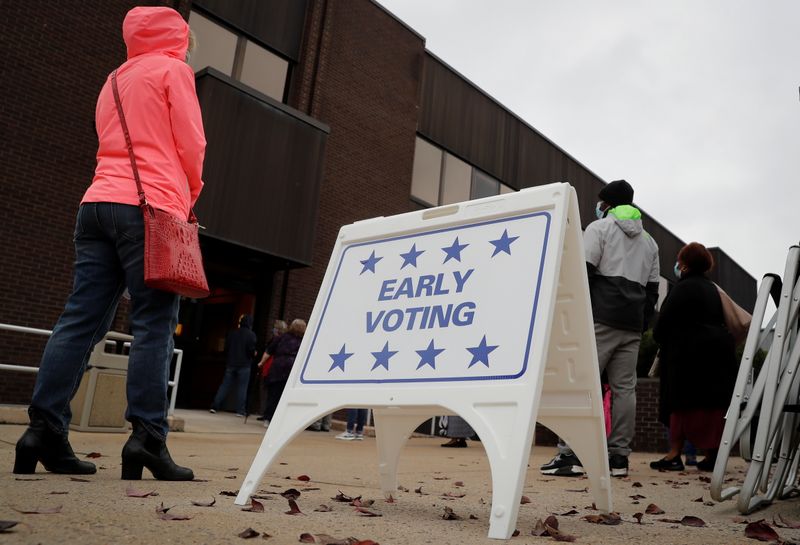NEW YORK, (Reuters) – New Yorkers jammed polling places and stood in line for hours to cast ballots on the state’s first day of early voting today, rushing to record their choices 10 days ahead of the Nov. 3 presidential election.
Long lines formed before polls opened across New York City and Long Island, videos on social media showed, as New Yorkers joined a flood of more than 56 million Americans across the country who have cast early ballots at a record-setting pace.
Saturday was the first time that voters in New York, a reliably Democratic state where Democrat Joe Biden has a wide lead in polls over Republican President Donald Trump, have been allowed to vote early in a presidential election.
A majority of New York voters haven’t supported a Republican candidate for president since Ronald Reagan’s re-election in 1984. Early in-person voting will continue in the state until Nov. 1.
“Patiently waiting for Mommy to vote early!” the New York City Board of Elections tweeted, showing a photo of a young girl sitting in line with a drawing book.
About 56.1 million Americans already have cast early ballots across the country either in person or by mail, a pace that could lead to the highest voter turnout rate in more than a century, according to data from the U.S. Elections Project.
The rush to vote is a sign of intense interest in the contest between Trump and Biden, as well as concerns about avoiding crowded polling places on Election Day and reducing the risk of exposure to the coronavirus pandemic, which has killed more than 224,000 Americans.
The high level of early voting has led Michael McDonald, the University of Florida professor who administers the U.S. Elections Project, to predict a record turnout of about 150 million, representing 65% of eligible voters, the highest participation rate since 1908.

